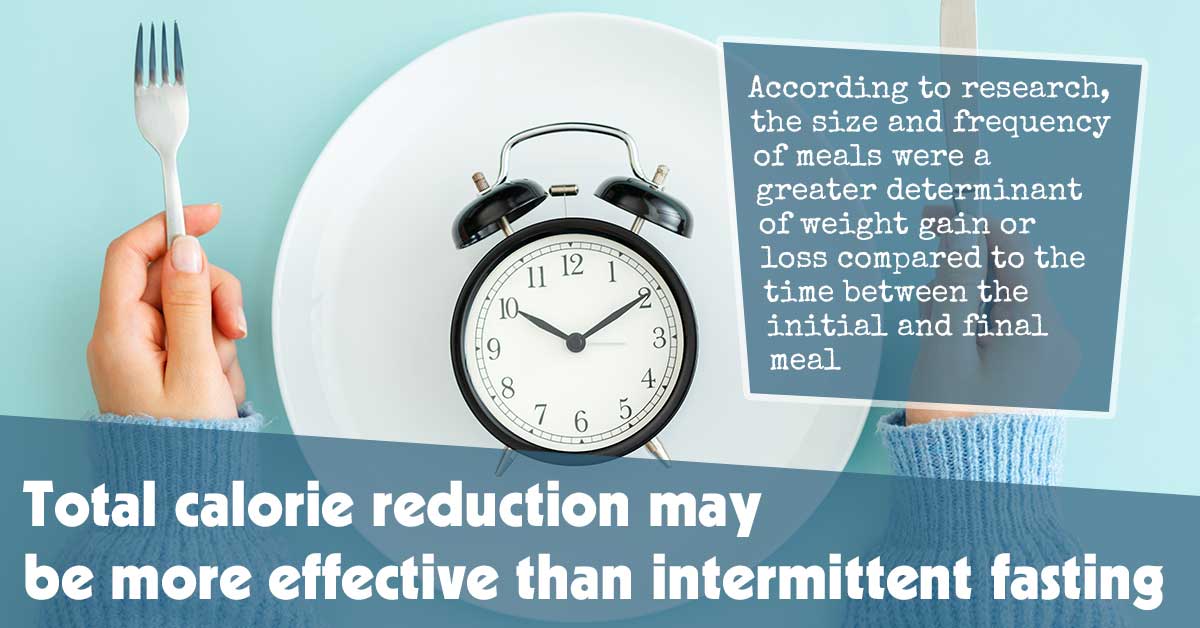According to research, the size and frequency of meals were a greater determinant of weight gain or loss compared to the time between the initial and final meal.1✅ JOURNAL REFERENCE DOI: 10.1161/JAHA.122.026484
Despite the popularity of intermittent fasting, or time-restricted eating, it hasn’t yet been fully established if limiting the overall eating window throughout the day helps with weight control.
This study looked at the correlation between time from initial meal to final meal and weight change. Almost 550 individuals (18 years or older) were enlisted in the study. The individuals had a minimum of one height and weight measurement recorded in the 2 years before the enrollment period of the study.
80% of the participants self-reported as white individuals; 12% self-reported as Black individuals; and approximately 3% self-reported as Asian individuals. The majority of them reported they had a college education or higher; their age was 51 years on average; and their BMI was 30.8 on average, which is regarded as obese. The follow-up time was 6.3 years on average for weight recorded in the health records.
Individuals having a higher BMI when enrolling were more likely to be Black individuals, older, have hypertension or Type 2 diabetes, exercise less, have a lower level of education, consume fewer vegetables and fruit, have a longer time from final mealtime to sleep and a shorter time from initial to final meal, in comparison to the individuals who had a lower BMI.
A mobile application was created for participants to record eating, sleeping, and awakening time for each 24-hour window in real-time. Text messages, emails, and in-app notifications prompted individuals to make use of the app whenever possible throughout the 1st month and again throughout “power weeks” – 1 week each month for the 6-month treatment part of the study.
According to the timing of daily eating and sleeping captured in the mobile app, the following could be measured:
- the duration from the initial meal to the final meal every day;
- the duration from waking to the initial meal; and
- the duration from the final meal to sleep.
A median for all data from completed days was calculated for each individual.
The analysis of the data discovered:
- Meal timing wasn’t linked to weight change throughout the follow-up period of 6 years. This included the initial to final meal duration, from waking up to consuming an initial meal, from consuming the final meal to sleep time, and the total duration of sleep.
- The total number of large meals (1,000 calories or more) and medium meals (between 500 and 1,000 calories) each day were each linked to an increase in weight over the follow-up of 6 years, while fewer small meals (500 calories or less) were linked to a reduction in weight.
- The time from the initial to the final meal was 11.5 hours on average; the time from awakening to the initial meal measured was 1.6 hours on average; the time from the final meal to sleep was 4 hours on average; and sleep duration was measured at 7.5 hours on average.
- The study didn’t detect a link between timing of meals and weight change in a group of individuals having a wide range of body weight.
Even though previous research has indicated that intermittent fasting could regulate metabolism and improve the rhythms of the body, this study in a large group of individuals having a wide range of body weights didn’t detect this association.
The researchers point out that the study had limitations given that they didn’t assess the complex interactions of frequency and timing of eating. Also, considering that the study was observational, the researchers were not able to conclude cause and effect.
They were also unable to establish the intentionality of weight loss in study participants before their enrollment and couldn’t eliminate any preexisting health issues variables.



